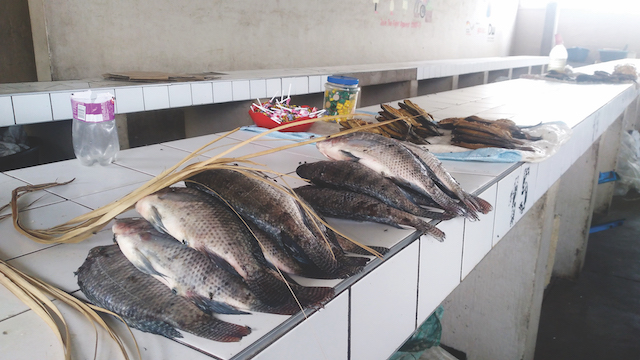[ad_1]
THE determination of the Katima Mulilo Open Market’s fish vendors to keep their businesses open during the closure of the fishing season sees them travel approximately 210 kilometres to Livingstone in Zambia to buy fish.
The Ministry of Fisheries and Marine Resources has implemented an annual fishing moratorium that starts on 1 December and ends on 28 February which prohibits fishing of any stock in the channels and rivers of the Zambezi region.
The aim of the season closure is to allow fish to breed without disturbance and produce more fish stock, as currently the fish stock is scarce because it is either economically overfished or looted.
The moratorium, however, affects the income of more than 108 women who sell the region’s signature Zambezi bream, either fresh or dry, at the Katima Mulilo Open Market.
Speaking to The Namibian yesterday, the visibly distressed vendors noted that they cannot afford not to have an income for three months, which is why they have resorted to depending on Zambian commercial fish pond farmers to source their stock.
“We sustain our household needs and buy stationery for our children by selling fish, as that is our only source of income. If only the government would allow the fishing of bigger fish at least during the closing period, it would help us. At the moment, we are struggling to make ends meet, because it’s not cheap to buy fish from Zambia,” said fish vendor Susan Kasubiza.
Fish vendors say they spend about N$850 per trip to travel to Livingstone, as well as charges at the Namibian border, which fluctuate between N$300 and N$400.
Fresh fish per kilogramme costs about 47 Zambian kwacha.
“If you happen to buy fish for 5000 Zambian kwacha, you only make about N$900 because the fish is very expensive. On the journey, we also have to buy ice cubes and other necessities to make sure that the fish does not spoil. Despite the closing season, we are expected to pay for our stands at the market, which cost us N$180 per month,” said another fish vendor, Petronella Lyomba.
Despite all the added expenses of sourcing the fish in Zambia, their customers still complain about the prices being high, said Lyomba.
The closure of the fishing season also sees fewer customers frequenting the fish stalls, especially in December, because despite many locals working outside town coming for holidays and wanting fish, they believe there won’t be any, she said.
“We even have customers outside the region that we cannot supply during this period. It’s really not the easiest three months for our businesses, but we have to push through it because we have daily lives to sustain,” she said.
[ad_2]
Source link




